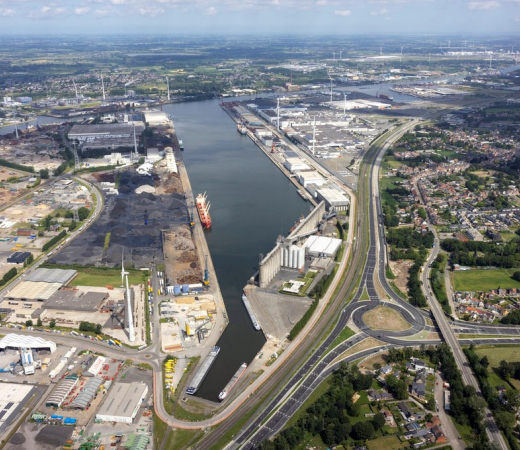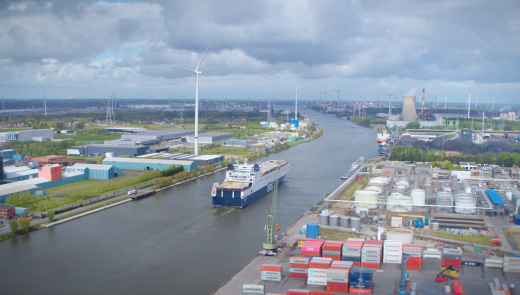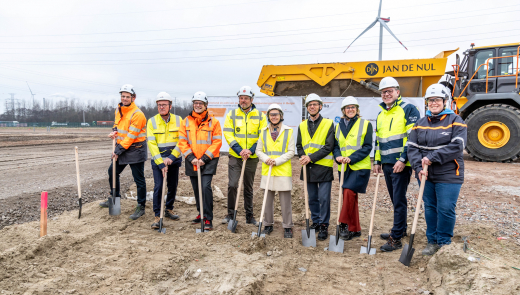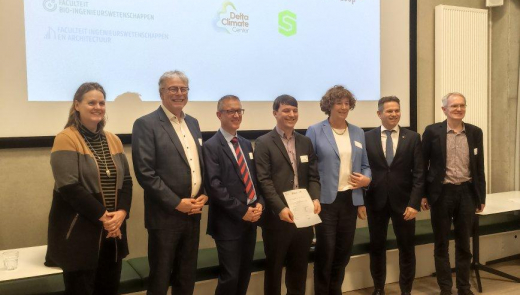North Sea Port and Port of Antwerp-Bruges will develop pipelines to accelerate energy transition

North Sea Port is to become a minority shareholder in Pipelink, currently a wholly owned subsidiary of Port of Antwerp-Bruges. This new partnership will develop and build local, national and international pipeline projects – essential steps forward in the modal shift and energy transition.
Pipelink owns and manages an asset base of 750 kilometres of pipelines in Belgium. With North Sea Port becoming a minority shareholder in Pipelink thanks to a capital injection, the three largest Belgian port platforms Antwerp, Ghent and Zeebrugge will be represented in Pipelink.
Modal shift and energy transition
Pipelines are the most environmentally friendly, energy-efficient and safe method for transporting gaseous and liquid products. As such, they have a key role to play in the modal shift and energy transition.
Win-win
Besides Ghent, Vlissingen and Terneuzen in the Netherlands are also part of North Sea Port. Since this area is home to numerous energy-intensive companies, there are various pipeline opportunities there. Furthermore, Pipelink's ambition is to develop pipeline networks for the transport of (green) hydrogen carriers such as ammonia, methane and methanol.
New pipelines between the Zeebrugge and Antwerp port platforms will cross the Ghent port platform and can therefore also connect the Ghent and Antwerp clusters with each other. By analogy with Port of Antwerp-Bruges in Antwerp, North Sea Port – as a shareholder in Pipelink – can play a facilitating role in developing these projects.
Daan Schalck, CEO North Sea Port: "Our participation in Pipelink is yet another great example of cooperation between ports, and with companies. This allows us to help determine the management and development of the CO2 pipelines in our port area and put opportunities for port customers first. Indeed, North Sea Port is committed to maximising access to the entire port area via the Belgian and Dutch backbones and to the hinterland.”
Jacques Vandermeiren, chairman of Pipelink's executive board and CEO of the Port of Antwerp-Bruges: "For a challenge like the energy transition, collaboration is essential. The fact that North Sea Port is now also part of Pipelink will only accelerate this transition and the construction of the necessary infrastructure. This is good news and a win-win for all parties. By connecting the Belgian port platforms, we can avoid competition and potential duplication of expensive infrastructure."
Shared ambition: CO2 transport infrastructure
Carbon Capture & Storage (CCS) and eventually the reuse of CO2 as a feedstock for various applications (Carbon Capture & Utilisation, CCU) are essential in the transition to climate neutrality. Like Port of Antwerp-Bruges with its Antwerp@C project (with Pipelink as a partner), in the shape of Ghent Carbon Hub, North Sea Port is also aiming to offer its industrial customers a CO2 hub with locally accessible infrastructure (open access backbone).
Alongside these local backbones, Fluxys, Pipelink, Socofe and FPIM have joined forces to develop a national CO2 backbone known as "C-grid". It will be connected to CO2 export infrastructure and adjacent infrastructure in neighbouring countries to support energy-intensive industries in northwestern Europe as they move towards climate neutrality.


